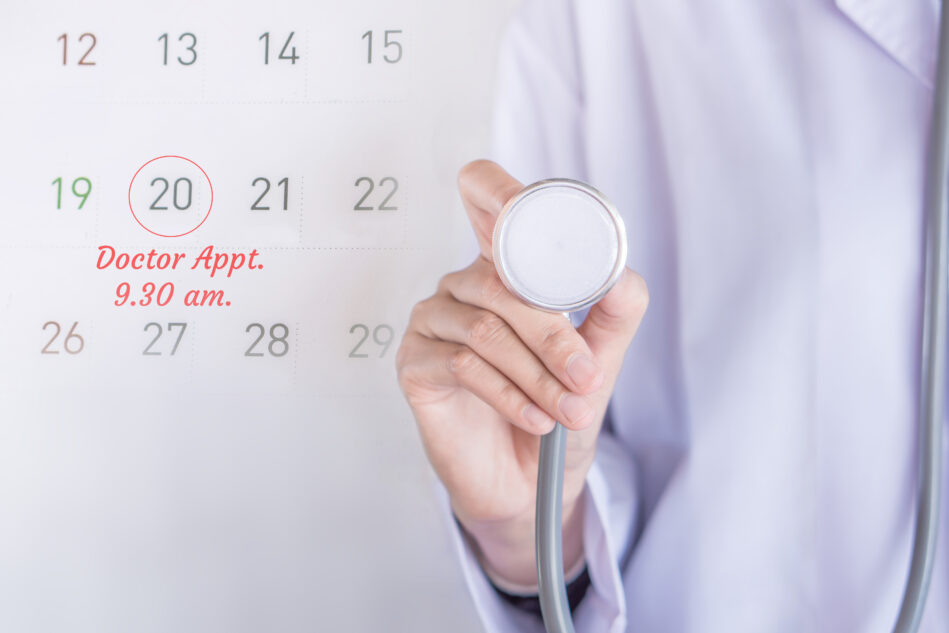We’ve all heard the saying, “an ounce of prevention is worth a pound of cure,” except that prevention isn’t always clear-cut. Prevention includes maintaining a healthy diet, exercising regularly and managing stress, but also regular monitoring of your health with tests that only healthcare professionals can provide. Still, making and attending doctor’s appointments is time-consuming. Also taxing is that guidelines for preventive care and screenings regularly change. For example, in 2021, the National Comprehensive Cancer Network updated its colorectal cancer screening guidelines, which lowered the age to start screening to 45 from 50, while noting that some people can go seven to 10 years between screenings.
Moreover, the news is rife with examples of times when screening can cause more harm than good. Those could be when they identify false positives or cancers that are unlikely to progress, but cause anxiety or lead to unnecessary treatment. How many tests and doctor’s appointments does a healthy person really need in a year?
Most of the doctors MedShadow spoke with agreed that it’s important to prioritize making at least one or two doctor’s appointments to your primary-care provider (PCP) each year, regardless of age. He or she can address any concerns you have about changes in your overall health and blood pressure and conduct appropriate blood screens like those for cholesterol and iron levels. Your doctor can also refer you to any necessary specialists. “You ought to see your physician once a year for an annual checkup,” says Shauna Hatcher, MSPH, a nutritionist and public health specialist.
However, some physicians say that healthy people under the age of 50 can have doctor’s appointments a little less frequently, once every two to three years.
Your Teeth Need Regular Care, Too
At any age, you should visit the dentist one to two times per year. “Our mouth is a gate into our body, which bacteria are happy to use,” says Chicago dentist Henry Hackney, DMD. The division between dental and medical care only exists in the insurance world. In reality, your mouth functions as a window to your overall health. Poor oral health increases the risk for a variety of other health issues, such as heart disease and dementia.
Doctor’s Appointments In Your 20s and 30s
Gynecologist: For women, an annual visit to the gynecologist may be important, although some PCPs have the experience to conduct Pap smears and testing for sexually transmitted diseases (STDs) or infections. Anyone who is sexually active should be tested for STDs at least once a year.
Dermatologist: Depending on your level of risk based on factors like family history and your experience with sun exposure, you may need to see a dermatologist for annual skin-cancer checks. This is another service that some PCPs can provide. Some patients, however, are more comfortable getting their skin-cancer checks only from a dermatologist.
Audiologist: The American Speech-Language-Hearing Association suggests that adults under 50 get their hearing checked once every 10 years.
Optometrist/Ophthalmologist: If you do not have prescription lenses, getting your eyes checked every two years is plenty. If you do have glasses or contacts, though, experts recommend having your eyes examined annually, both to update the prescription and to look for signs of glaucoma or other diseases.
In Your 40s
Gynecologist: For women, an annual visit to the gynecologist could be important, though some PCPs have the experience to conduct Pap smears and testing for sexually transmitted infections. Anyone who is sexually active should be tested for STDs at least once a year.
Dermatologist: Depending on your levels of risk based on factors like family history and sun exposure, you may need to see a dermatologist for annual skin cancer checks. This is another service that some PCPs can provide. Some patients, however, are more comfortable getting their skin-cancer checks only from a dermatologist.
Audiologist: The American Speech-Language-Hearing Association suggests that adults under 50 get their hearing checked once every 10 years.
Optometrist/Ophthalmologist: If you do not have prescription lenses, getting your eyes checked every two years is plenty. If you wear glasses or contacts, though, experts recommend having your eyes examined annually, both to update the prescription and to look for signs of glaucoma or other diseases.
Radiologist: Once you reach your 40s, your PCP may recommend you visit a radiologist or other specialist to test for common cancers like colorectal or breast. Women can start annual breast cancer screenings as young as age 40. At 45, they should start getting them annually. The frequency of these exams will likely depend on your genetic and environmental risk factors and is something you should discuss openly with your PCP. At this point, you rarely need an annual screening for cancer—most of the tests can be done every two to five years.
Doctor’s Appointments In Your 50s
In your 50s, your PCP may start to take more blood samples to examine the state of your kidneys and liver. He or she may also request more tests to evaluate your risk of heart disease. Some of these can be done in the general practitioner’s office, but for others, your doctor may refer you to a cardiologist.
Gynecologist: For women, an annual visit to the gynecologist could be important, though some PCPs have the experience to conduct Pap smears and testing for STDs. Anyone who is sexually active should be tested for STDs at least once a year.
Dermatologist: Depending on your levels of risk based on factors like family history and sun exposure, you may need to see a dermatologist for annual skin cancer checks. This is another service that some PCPs can provide. Some patients, however, are more comfortable getting their skin-cancer checks only from a dermatologist.
Audiologist: Once you hit 50, the American Speech-Language-Hearing Association recommends getting an audiology exam every three years. Loss of hearing is extremely common among older adults and treating it properly can help reduce your risk of developing dementia.
Optometrist/Ophthalmologist: If you do not have prescription lenses, getting your eyes checked every two years is plenty. If you do wear glasses or contacts, though, experts recommend having your eyes examined annually, both to update the prescription and to look for signs of glaucoma or other diseases.
Radiologist: Your PCP may recommend you visit a radiologist or other specialist to conduct screenings for common cancers. The frequency of these exams will likely depend on your genetic and environmental risk factors and is something you should discuss openly with your PCP. At this point, you rarely need an annual screening for cancer—most of the tests can be done every two to five years. However, from ages 45 to 55, you should be screened annually for breast cancer. After 55, it’s best to get screened every two years.
Cardiologist: You don’t need to see a cardiologist unless your blood test gives concerning results or you have symptoms that suggest heart disease, such as shortness of breath, swelling of the lower body or discomfort in the upper body, Steven Nissan, MD, writes for the Cleveland Clinic.
60s and Above
Gynecologist: For women, an annual visit to the gynecologist could be important, though some PCPs have the experience to conduct Pap smears and test for STDs. Anyone who is sexually active should be tested for STDs at least once a year.
Dermatologist: Depending on your levels of risk based on factors like family history and sun exposure, you may need to see a dermatologist for annual skin cancer checks. This is another service that some PCPs can provide. Some patients, however, are more comfortable getting their skin-cancer checks only from a dermatologist.
Audiologist: The American Speech-Language-Hearing Association recommends getting an audiology exam every three years. Loss of hearing is extremely common among older adults and treating it properly can help reduce your risk of developing dementia.
Optometrist/Ophthalmologist: At this age, you should visit your eye doctor once a year to check for cataracts, glaucoma or other eye disease and to update prescription lenses, if necessary.
Radiologist: Once you reach your 40s, your PCP may recommend you visit a radiologist or other specialist to conduct screens for common cancers like colorectal or breast. The frequency of these exams will likely depend on your genetic and environmental risk factors and is something you should discuss openly with your PCP. At this point, you rarely need an annual screening for cancer—most of the tests can be done every two to five years. After 55, you can get screened every two years.
Cardiologist: You don’t need to see a cardiologist unless your blood test gives concerning results or you have symptoms that suggest heart disease, such as shortness of breath, swelling of the lower body or discomfort in the upper body, Steven Nissan, MD writes for the Cleveland Clinic.
When Do I Need to See a Geriatrician?
According to the American Association of Retired Persons (AARP), there’s no definitive age at which you need to start visiting a geriatrician. It depends more on your overall health. Geriatricians do not need to replace your PCP. They specialize in helping treat conditions that affect older adults, like loss of mobility, memory problems and polypharmacy, which is being prescribed several different types of drugs that may interact and exacerbate side effects. If you’re experiencing any of these issues, or you’ve recently been hospitalized for a fall, consider scheduling a consultation with a geriatrician.






